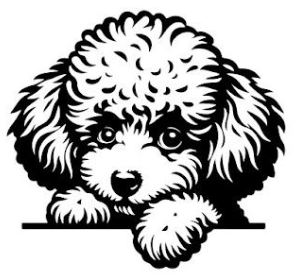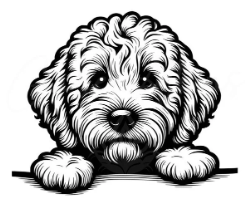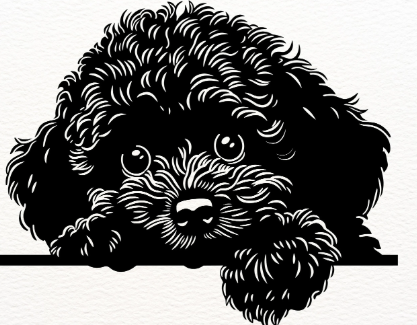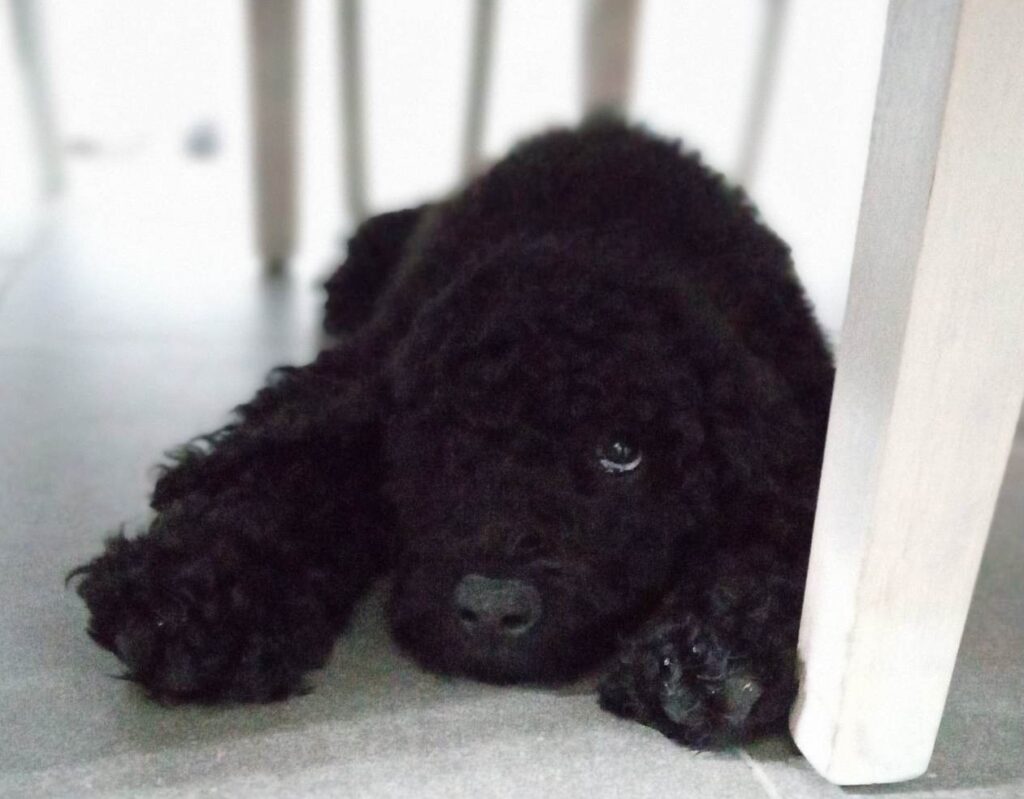Starting the Adventure
CONGRATULATIONS!!!
On taking the first step to your new baby
Congratulations on taking the first step toward welcoming a Little Pupz baby into your home! Bringing a new puppy into your life is an exciting and rewarding journey filled with love, laughter, and unforgettable moments. To help you prepare for this wonderful addition to your family, we’ve put together some helpful tips and insights. From essential items to understanding the unique traits of our poodles, golden retrievers, and doodles, we’re here to guide you every step of the way as you embark on this new adventure.
Know The Breed

POODLE
Poodles are known for their intelligence and elegance. They thrive on mental stimulation and love learning new tricks. Their hypoallergenic coat requires regular grooming, but their affectionate and loyal nature makes every effort worth it.

DOODLE
Doodles combine the best traits of poodles and golden retrievers. They are playful, smart, and adaptable to various living environments. Their coats are typically low-shedding, but they still benefit from regular grooming. Doodles are perfect companions for families looking for a mix of energy and affection.

GOLDEN RETRIEVER
Golden Retrievers are gentle, loving, and fantastic with families. They are active dogs that enjoy outdoor play and long walks. Their friendly nature and eagerness to please make them easy to train and a joy to be around.
Preparation/Supplies for you new baby

Food & Water Essentials
- High-quality puppy food (we’ll recommend what your puppy is accustomed to).
- Food and water bowls (preferably non-slip).
Comfort Items
- A cozy bed or crate with a soft blanket.
- Familiar toys to provide comfort and entertainment.
Training Tools
- Potty training pads.
- Leash, harness, and ID tags.
- Treats for positive reinforcement.
Grooming Supplies
- Puppy-safe shampoo, brush, and nail clippers.
- Towels and grooming wipes.
Health & Safety
- A vet appointment scheduled within the first few days.
- Puppy-proofed home (remove hazards like cords or toxic plants).
- Cleaning Supplies
- Enzyme-based cleaners for accidents.
- Disposable or washable puppy pads.
- Lint rollers for furniture and clothing.
Our commitment to you
What all comes with your baby
- Shots
- Deworming
- Vet records
- Microchip
- 1-year health guarantee
- 2-day health insurance
- Temperament testing
- Potty training
- Crate training
- Early neurological stimulation (ENS) training
- Grooming training
- Puppy kit (food, toys, blanket, and Day 1 puppy record)
- Pedigree and registration
- Parent genetics and OFA certifications
Puppies are sold with spay/neuter contract
Mom & Dad Criteria
- Health
- Temperament
- Genetics
- Confirmation
- Physical Appearance
- Coat Colors and Quality
The day you bring your new puppy home is the day you’ve been waiting for. It’s your first day as long-term companions, and you want to begin bonding with your puppy immediately. Start off right by staying home, so you can make your puppy feel secure and enjoy every minute of this experience.

Surviving the First Night
- Limit your puppy’s access. Too many new places, smells, and people at once may confuse him. Instead, let him explore a designated area where you are, too. Then introduce him to the to rest of the house, one room at a time.
- Choose a potty spot. Start by taking him to the outside area where you want him to eliminate. When he does relieve himself, use a command that you’ll stick to, like “go potty” and reward him with a special treat and praise.
- Introduce him to his new family. If possible, do this one person at a time. Give him a chance to meet each of you quietly. Supervise young children. Discourage them from picking up the puppy. Let them hold him in their laps with your help,
- Minimize stress and excitement. Don’t invite friends and neighbors over to meet him yet. That will be important very soon, but should not start on the first day.
- Introduce other family pets. Puppies are still developing their communication skills and don’t understand the rules set in place by adult dogs. As long as an adult dog’s behavior is appropriate when correcting a puppy, it’s okay if she growls a little. If the elder dog becomes agitated, separate or redirect the puppy.
- Don’t interact with dogs outside your home. Because your puppy probably hasn’t gotten all of his shots, he shouldn’t interact with strange dogs or even walk where other dogs do.
- Start enforcing rules. The puppy needs to learn the house rules from the very beginning. Praise good behavior. Set your rules ahead of time and stick to them, for example: Where do you want puppy to sleep? Is puppy allowed on furniture? Can puppy have food scraps from the table?
- Make a veterinary appointment. Your vet should give your puppy a checkup in the next few days.
Resistance
Some puppies sleep through the night right from the start. Others may cry for a few nights. And some may not be able to hold their pee and will need a middle of the night trip outside- but this usually ends by age 4-5.months.
- For many puppies, evening is the “witching hour,” and if you anticipate it by initiating play, he may use up some energy and settle down. An evening stroll gives him exercise and a chance to take a potty break.
- Put the crate in your bedroom. Your pup will feel more secure if he has you nearby. Bring home a blanket or stuffed toy that smells like your pup‘s mother, and keep that in his crate.
- A set bedtime makes his adjustment and house training easier for everyone. |t doesn’t matter if it’s 8 p.m. or midnight as long as it becomes a routine. Take him to his crate and help him settle down for the night.
- If your puppy cries, do not put him in your bed unless that Is where you want him to sleep. You can put the crate right next to your bed and put you hand inside to reassure him that you’re there. A crate is like a den, where a puppy won’t eliminate.
Start a Routine and Stick to It
Structure will help your new canine family member feel secure and understand what’s expected of him. Routine makes it easier for everyone, humans included.
- Mealtime: Young puppies eat three times a day, Put your puppy ona regular feeding schedule. What goes in-on a regular schedule will come out on a regular schedule.
- Potty breaks: Every time your puppy eats, drinks, wakes up, plays, sniffs around the room — most young puppies have to eliminate at least every 45 minutes when awake. Pick the puppy up and carry him to the designated potty area.
- Playtimes: Your puppy needs exercise and interaction with you. A word of caution: sustained, strenuous exercise (long runs, jumping) is not good for puppies, but playing with toys and with you, mental stimulation with puzzles, and running in the yard are great. A tired puppy is a good puppy.
- Dreamland: Young puppies sleeps a lot; in fact,some will sleep 16-to-18 hours a day. Plan on several nap times during the day. At night, set a bedtime.
